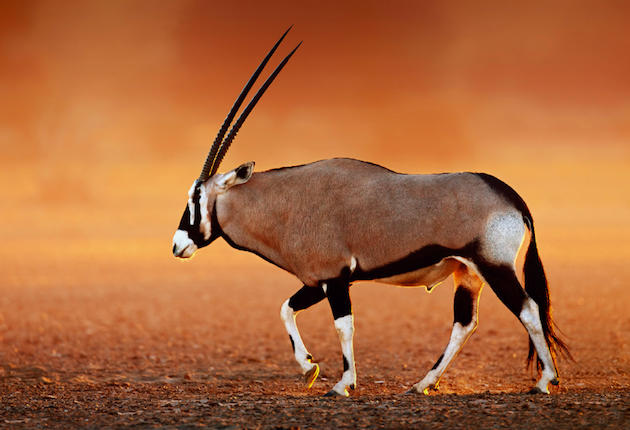Note: Originally published April 18, 2016.
Despite Namibia’s proactive step to ban hunting bans earlier this year, the country’s hunting industry is still threatened. A proposed ban of trophy importations into the European Union could spell doom for the country’s sport hunting industry.
The EU Parliament proposed a ban on hunting trophies imported from Africa in a March meeting in Brussels. It is expected to vote on the matter today, April 18. If passed, the ban would reportedly threaten the livelihoods of 30,632 adults working for 16 hunting conservancies across the northeastern area of the country, known as the Zambezi Region.
Hunting isn’t simply an important industry for these Namibians; for many, it is the industry. In the Bamunu Conservancy alone, for example, hunting has brought in $3.1 million since 2011. The money is used to pay wildlife guards’ salaries, manage wildlife, and provide benefits for rural households. To say that the loss of revenue would be substantial is an understatement.
Surprisingly, Botswana was the polar opposite of Namibia in its reaction to the EU proposal. Minister of Environment, Tourism, and Wildlife Tshekedi Khama told StarAfrica that the international bloc should be doing more to combat poaching, particularly their ability to get firearms, but said the trophy ban was “better than nothing.”
“I think it is a welcome move; they should go all the way and see how best they can help in anti-poaching. We have never got any help from the EU to stop poaching in Botswana,” Khama said.
What that has to do with legitimate hunting and the taking of select animals for sport, he did not say.
The irony is significant. This post from National Geographic in 2013 celebrates the last day of safari hunting in Botswana, the “end of an era of conservation by the gun, and the beginning of a new era for Africa, a more gentle caring one.” Hunting dollars might be frowned upon, but they could have been spent to provide the necessary anti-poaching funds officials are now asking the EU for.
Sadly, Namibia may not be able to receive those much-needed funds by the choice of others, despite the sovereign country’s attempts to protect and promote hunting within its borders.


The anti-hunting “conservationists” with their “kinder, gentler” tactics fail to realize that sport hunting dollars fuel the effort to stop poaching, provide gainful employment to thousands, allow specie specific management, and provide a welcome source of animal protein to people whose diets are so woefully inadequate. In some cases, sport hunting prevent the crops of subsistence farmers from being disseminated. The expenditures of conservation dollars generated by the safari industry are not limited to the preservation of species typically sought by hunters. In the absence management, unfettered reproduction and total protection, wildlife would soon threaten all farming, clutter the highways and byways and threaten human populations throughout the world. Hunters are willing to fund conservation that supports hunting as a conservation tool, without those funds (billions of dollars), are those who condemn hunting willing to fund to the same level? I think not.